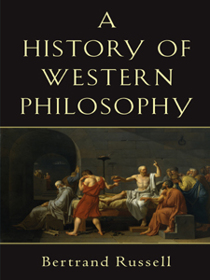Search -
A History of Western Philosophy
A History of Western Philosophy
Author:
When Bertrand Russell was a young student in Berlin, he used to walk down Under den Linden planning his future. He would devote his life to making the concrete abstract, and the abstract concrete-or (to put it another way) he would find the lucid medium for clarifying the riddles of the here and now and also the endless speculations that engage ... more »
Author:
When Bertrand Russell was a young student in Berlin, he used to walk down Under den Linden planning his future. He would devote his life to making the concrete abstract, and the abstract concrete-or (to put it another way) he would find the lucid medium for clarifying the riddles of the here and now and also the endless speculations that engage ... more »
ISBN: 292535
Publication Date: 1945
Pages: 895
Rating: ?
Publication Date: 1945
Pages: 895
Rating: ?
0 stars, based on 0 rating
Publisher: Simon and Schuster
Book Type: Hardcover
Other Versions: Paperback, Audio CD
Members Wishing: 0
Reviews: Write a Review
Book Type: Hardcover
Other Versions: Paperback, Audio CD
Members Wishing: 0
Reviews: Write a Review
Genres:




